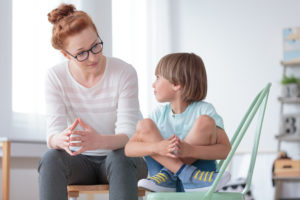Parenting Coordination in Huntsville
 Although all aspects of a divorce can be challenging, some of the most contentious parts revolve around children. Who will have custody, or should custody be shared? Where will the children live?
Although all aspects of a divorce can be challenging, some of the most contentious parts revolve around children. Who will have custody, or should custody be shared? Where will the children live?
Who will take them to school and pick them up afterward? What about visitation schedules? Where are the children going to spend major holidays? What about money? Who is going to pay for the child’s education, medical care, and food?
Although we can hope that parents will put their children’s needs and wants first when making these decisions, divorcing parents often end up fighting bitterly about these issues. Oddly, many parents find it easy to agree on major decisions about their children, such as which school they should attend. And then they fight about minor issues, usually revolving around the day-to-day logistics of caring for the children.
Conflicts about child hand-offs and child caretaking chores can create a lot of anger, frustration, and bitterness between separated spouses. Unfortunately, the children suffer the most when their parents get caught in this trap of perpetual, ongoing petty conflicts.
WHAT IS PARENTING COORDINATION?
Parenting coordination is an approach to resolving conflicts between parents over the logistics of caring for their children. A specially trained mediator meets with the parents both separately and together. The mediator does not take either parent’s “side” and instead becomes an impartial advocate for the children’s well-being, primarily through trying to resolve the conflicts between the parents.
The parenting coordinator asks each parent about their wants and needs. The parenting coordinator also asks about their work schedules, social schedules, financial situation, and childcare support. After developing a full picture of the parents’ circumstances and the needs of the children, the parenting coordinator works with the parents to come up with detailed plans about how they will care for the children.
By resolving day-to-day logistics issues, the parenting coordinator can substantially reduce the conflicts, anger, and frustration that the parents feel toward each other. This naturally allows them to be better, happier parents. Also, children are quite attuned to their parents’ emotions, and calm, contented parents tend to lead to happy, well-adjusted children.
In addition to helping parents come up with a parenting plan, parenting coordinators can help the parents come up with “what to do if this happens” contingency plans. For example, what if Sue was supposed to pick up her son at 6 pm, but at the last minute, her boss asks her to take an important client out to dinner? Can Sue ask the son’s father to pick up the child, or does Sue need to establish a relationship with an emergency back-up babysitter for these occasions?
Resolving these types of situations before they arise is an integral part of conflict avoidance that a parenting coordinator can assist with. A parent who feels that the other parent is regularly ducking out on parenting obligations at the last minute can become very resentful and bitter. It’s best to prevent this from happening by putting contingency plans in place.
Do My Spouse and I Need a Parenting Coordinator?
Traditionally, parenting coordinators are only used in high-conflict cases. These are cases where the parents seem to be locked in an intractable battle over their assets and children and can’t seem to be able to reach any agreements at all.
In some of these cases, the parents are using the children as bargaining chips. In other cases, the parents don’t seem to be considering the well-being of their children. A judge can order a high-conflict couple to work with a parenting coordinator. In court-ordered cases, the parenting coordinator may be given the authority to come up with a childcare plan and force the parents to abide by it.
However, most divorcing couples with children can benefit tremendously from consulting a parenting coordinator. Unless you and your ex-spouse can magically agree on every aspect of day-to-day childcare, and never feel resentful if your ex-spouse is late for a child hand-off or pick-up, you can benefit from talking with a parenting coordinator.
Remember, it is the little things that cause anger and frustration between parents. It’s the day-to-day grind of childcare that creates the fights, not the overall picture. You and your spouse may be in complete agreement about your child-rearing philosophy, and both be dedicated to co-parenting, and you can still end up fighting about the mundane details. Working with a parenting coordinator can prevent these problems.
What Do Parenting Coordinators Handle?
Parenting coordinators do not make custody decisions or decide who will be the primary care-taker. They also aren’t in charge of arrangements for childcare payments or court-ordered visitations. These are legal matters that are determined by a judge.
Parenting coordinators work with the parents to help them figure out how to care for their children on a day-to-day basis after the divorce. In addition to assisting the parents in working out logistical issues such that they can avoid conflicts, parenting coordinators also help with:
- Improving communication between the parents so they can discuss parenting issues
- Educating parents about developmental phases and emotional/behavioral issues their children may develop after a divorce
- Working to resolve conflicts between the parents about their parenting plans
In some cases, the parenting coordinator can develop a parenting plan and impose it on the parents.
The goals of a parenting coordinator include:
- Putting the child’s needs first
- Shielding the child from parental conflict
- Allowing the child to develop a healthy relationship with both parents
- Improving the co-parenting relationship
- Monitoring the parents to ensure they comply with the parenting plan and all court orders involving the children
- Developing or clarifying formal parenting plans
A parenting coordinator does not have the legal authority to make changes to custody or visitation plans. However, a parenting coordinator can make short-term changes to reduce a child’s stress. For example, if the parents are experiencing a lot of conflict about the location or timing of child hand-offs and this is causing the child to experience a lot of stress, the parenting coordinator can impose a change in location or timing for a few weeks to reduce the child’s anxiety.
After helping the parents to develop a childcare plan, the parenting coordinator usually monitors the family for some time to ensure that everything is working out. If necessary, the parenting coordinator can adjust the plan. In extreme situations, the parenting coordinator can report back to the court and ask the judge to consider modifying custody and visitation orders.
In cases where both parents are seeking full custody, the parenting coordinator’s observations of the family in action can become a vital part of the judge’s decision-making process concerning custody and visitation decisions. The parenting coordinator can provide information to the judge from the child’s perspective as to what custody arrangement is in the child’s best interests. However, the judge makes the final decision, not the parenting coordinator.
Do I Need a Parenting Coordinator to Help with My Divorce or Custody Case?
In a high-conflict divorce or custody case, the judge may order the parents to work with a parenting coordinator. Even if a judge doesn’t do this, a couple can choose to work with a parenting coordinator, particularly if their case has signs of being a high-conflict case.
Around 25% of divorce/custody cases are categorized as high-conflict. Signs of a high-conflict divorce or custody case include:
- Anger and distrust
- Verbal abuse
- Threats
- Physical aggression
- Difficulty communicating
- Not prioritizing the well-being of the children
- Preferring litigation rather than choosing mediation or private discussions to resolve issues
Even if your case isn’t that extreme, a lot of divorcing couples find it very helpful to work with a parenting coordinator. Many studies have shown that the children are the ones who suffer the most after a divorce if their parents are in constant conflict about parenting chores.
Also, a parent can request that the court appoint a parenting coordinator to assist with their case. This is often a good idea if the parents are struggling to communicate or come to an agreement about childcare.
Parenting coordinators are not appropriate for abuse situations, either child or spousal abuse. They may be helpful in cases where one parent has substance abuse issues or emotional instability.
CONTACT OUR DIVORCE LAWYERS FOR HELP
If you are in the midst of a divorce, are contemplating a divorce, or have recently divorced and are struggling to figure out a parenting solution, call the Huntsville family attorneys of New Beginnings Family Law today. We can help. Whether or not your family situation qualifies as a high-conflict situation, you may benefit from working with a parenting coordinator.
Parenting coordinators are highly trained mediators. They are often licensed psychotherapists, or sometimes they are highly experienced family law attorneys. In either case, they have received extensive training in family law, child advocacy, mediation, and conflict resolution.
Once our firm has set you up with a parenting coordinator to resolve your parenting conflicts, our highly experienced divorce attorneys can help you come to a peaceful, conflict-free divorce agreement with your spouse so you can get on with your life.
Site Map | Disclaimer | Privacy Policy |
Disclaimer: No communication concerning a lawyer's services shall be published or broadcast, unless it contains the following language, which shall be clearly legible or audible, as the case may be: “No representation is made that the quality of the legal services to be performed is greater than the quality of legal services performed by other lawyers.
© 2026. New Beginnings Family Law. All Rights Reserved





